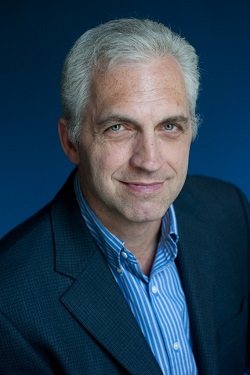As stressed-out college students hunker down in labs and libraries or pull all-nighters writing papers or prepping for exams, they may find themselves wondering, “Is all this worth it?”
And they’re not alone. Over the past decade and around the country, students, parents and the institutions themselves have been reexamining the value of higher education. A stagnant economy, higher student loan debt and increased demand for accountability and positive career outcomes have amplified questions about college choice.
If you ask students and former students themselves, the answer is clearly “Yes.” Open and accessible education is more valuable than ever, according to the 2015 Clark University Poll of Emerging Adults: Work, Education and Identity. The poll provides research on the views of 1,000 young people ages 21- to 29, and reveals their perspectives on higher education, employment and identity. These millennials were asked their opinions on such topics as career fields, ideal jobs and realities, education, on-the-job social media habits, work-life balance and more.
Among the Clark Poll findings:
- 86% say it is more important than ever to get education or training past high school in order to find a good job in today’s economy
- 70% expect to go back for more education or training at some point during their 30s and 40s
- 63% consider their loan debt to be manageable and say the education experience is “worth it.”
Answering in response to the prompt, “I continued education past high school because …”:
- 87% having a better chance of finding a good job
- 86% the possibility of making more money
- 80% broadening my knowledge of the world
- 72% foundation for graduate or professional school

Professor of Psychology
and Poll Director Jeffrey
Jensen Arnett
“They realize higher education is essential to finding a good job and making a good living, and they also hope it will be fun. If they don’t get that extra education, they regret it,” says Clark University Research Professor of Psychology and Poll Director Jeffrey Jensen Arnett, Ph.D., who coined the term “emerging adulthood” — the phase of the life between adolescence and full-fledged adulthood.
Financial support plays a key role in the decision whether to pursue education beyond high school, but family duties can also arise. Of those who did not go to college:
- 68% said they didn’t go to college because of cost
- 51% said they didn’t go because of family responsibilities
“As a society, we need to think about what we can do to help more people get the education they need, because when they do we all benefit,” Arnett adds.
Clark University is a thought leader on the impact of higher education on emerging adults and this latest Clark Poll offers insights into four main topics: emerging adults’ reflections on how education impacts their lives as they transition into the workplace; how emerging adults form their identity and seek identity-based work that makes the best of their talents and interests; insight into the stereotypes associated with emerging adults; and current work life and how emerging adults envision their future.
The Clark Poll launched its first survey of emerging adults (ages 18-29) in 2012, followed by a poll of their parents in 2013. In 2014, the poll questioned established adults (ages 25-39).
The full 2015 Clark Poll report is available online. For past reports, news releases, videos, media coverage, commentary by Jeffrey Jensen Arnett and more about emerging adults, visit here.
Founded in 1887 in Worcester, Massachusetts, Clark University is a liberal arts-based research university addressing social and human imperatives on a global scale. Nationally renowned as a college that changes lives, Clark is emerging as a transformative force in higher education today. LEEP (Liberal Education and Effective Practice) is Clark’s pioneering model of education that combines a robust liberal arts curriculum with life-changing world and workplace experiences. Clark’s faculty and students work across boundaries to develop solutions to complex challenges in the natural sciences, psychology, geography, management, urban education, Holocaust and genocide studies, environmental studies, and international development and social change. The Clark educational experience embodies the University’s motto: Challenge Convention. Change Our World.


